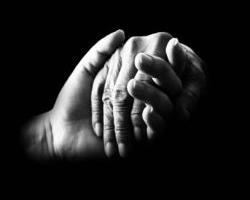How to Recognize the Psychological Signs of Anorexia
 While the physical signs of anorexia may be more easy to spot in certain individuals, psychological manifestations of the condition may mirror other common mental health problems.
While the physical signs of anorexia may be more easy to spot in certain individuals, psychological manifestations of the condition may mirror other common mental health problems.
Watching for trends in thinking, actions and habits can reveal warning signs.
Since early intervention strategies can potentially save a person’s life, knowing and recognizing the symptoms of anorexia may enable you to help a loved one or friend in need.
Excessive Concerns About Body Image
Anorexia is characterized mainly by having an all-consuming preoccupation with body image.
While body image concerns are common for men and women of all ages, in anorexia these become far more prominent. Watch for signs that an individual has a distorted body image or an obsession with looking a certain way.
You may also notice the person frequently makes self-critical comments or that he or she is unnaturally interested in the weight, size, shape or appearance of others.
Mood Swings
Since anorexia is both a psychological and physical condition, it’s common for sufferers to experience significant mood swings.
These are often rooted in the nature of the psychological torment that characterizes anorexia. They can also be caused by the fluctuating hormonal state that is induced by malnutrition, starvation or severe calorie restriction.
It’s not unusual for an anorexic to experience a “high” in mood or temperament during a long period of not eating, as it gives the individual a sense of euphoria and control over the body. These highs may alternate with lows, during which a person feels hopeless about their eating habits or is depressed about having eaten too much or eaten at all.
Withdrawal
One of the hallmark psychological symptoms of anorexia is withdrawal and isolation. People with anorexia can become skillful at hiding their behaviors from friends and loved ones. They will learn to avoid social situations that are centered around food or they may disappear or become engaged in some other task when food arrives at restaurants or parties.
Besides not wanting to eat in public, the anorexic individual may spend more time alone than usual, which could be due to depression or anxiety.
In some cases, an anorexic person withdraws from family and friends but finds community and support through pro-anorexia or “pro ana” websites or online forums.
While every individual is different, you can be fairly confident there is a problem if a person exhibits extremely unusual eating habits while also showing serious signs of distorted thinking about body image.
The best thing to do if you’re worried is to express your concerns in a non-judgmental manner while conveying your intention to be supportive in any way possible. In the end, an anorexic person can only heal if he or she is willing to seek treatment.
Source: Mayo Clinic
 Eating Disorder Self Test. Take the EAT-26 self test to see if you might have eating disorder symptoms that might require professional evaluation. All answers are confidential.
Eating Disorder Self Test. Take the EAT-26 self test to see if you might have eating disorder symptoms that might require professional evaluation. All answers are confidential.